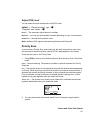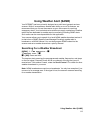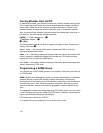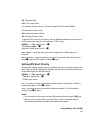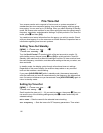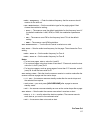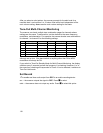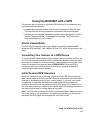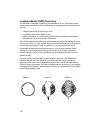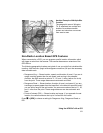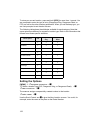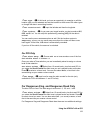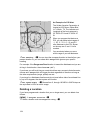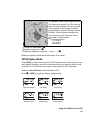119
Using the BCD996T with a GPS
Using the BCD996T with a GPS
The scanner lets you connect a compatible GPS device to it to provide two very
convenient operation features:
• automatically locks and unlocks systems and sites based on data you input.
This fine-tunes the scanning operation and makes it that much enjoyable.
• provides you with valuable displayed information and audio alerts for Points of
Interest, Dangerous Roads, and Dangerous Crossings. The GPS works in
close coordination with your scanner.
Device Compatibility
The GPS must have serial output, and capable of outputting standard NMEA
sentences GGA and RMC. (See “NMEA-0183 ver.3.01” which can be found on the
web.)
Connecting Your Scanner to a GPS Device
To use the location-based features of the scanner, you must connect a GPS to the
unit. Use the cable provided by the GPS manufacturer. Make sure that their cable
terminates in a female, 9-pin serial connector. Insert that plug into the male, 9-pin
socket on the back of the scanner labeled REMOTE/GPS. Once the GPS is
connected, refer to the following sections dealing with inputting selections to
enable location based feature operation.
Initial Scanner/GPS Operation
When the scanner first starts receiving a signal from the GPS, it briefly displays
GPS Connected and silently locks and unlocks all radio system and sites whose
quick key is enabled according to your current location. If you have a lot of data
programmed, it might take the scanner a couple of minutes to complete the
process. Once the scanner completes the initial GPS review, if you move into or
out of an area covered by a radio site, the scanner beeps and displays the name of
the system and whether it is being locked or unlocked.
Note: The GPS function temporarily locks out sites and systems when you move
out of their range. If you cycle power, all systems are unlocked until the scanner
reacquires the GPS signal and completes the initial GPS review.



